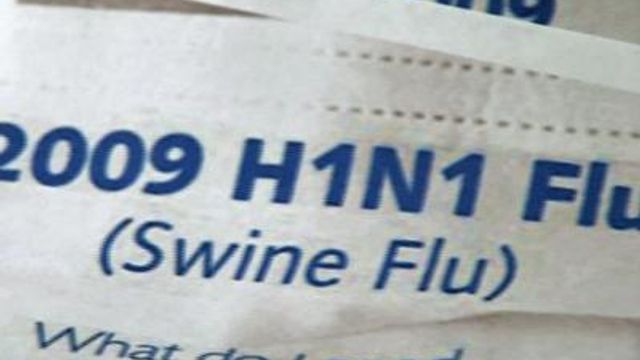Wake County reports first swine flu case
A woman in her 40s is the 22nd case of the H1N1 virus statewide, with eight coming in the last week.
Posted — UpdatedDr. Elizabeth Tilson, interim community health director, told commissioners that a 42-year-old woman began displaying flu-like symptoms last week and was tested for swine flu, also known as the H1N1 virus. The test was done by a private lab, but samples also were sent to the state public health lab for confirmation, she said.
The woman hasn't been traveling recently, Tilson said, so officials haven't determined how she contracted the illness in North Carolina. She has been isolated and is being treated with anti-viral medication, and officials have notified and are monitoring people with whom she has been in recent contact.
Two of those people have displayed some flu-like symptoms, but they haven't tested positive for H1N1, Tilson said.
"We know that (swine flu) is in North Carolina, and I don't think that this (case) is that alarming," she said.
The case is the 22nd case of the H1N1 virus statewide, with eight coming in the last week.
On Thursday, four elementary school-aged children in New Hanover Counties contracted swine flu. Individual cases were reported in Orange, Onslow and Brunswick counties.
More than 10,000 cases of H1N1 have shown up nationwide, and 17 people in the U.S. have died from the disease, according to the U.S. Centers for Disease Control and Prevention.
At least 42 countries have confirmed cases of the disease, which has sickened more than 11,000 people and caused about 90 deaths, the World Health Organization reports.
Serious complications include difficulty breathing, shortness of breath, severe nausea, vomiting, abdominal pains and chest pains, he said.
"This flu doesn't seem to be any more severe than regular seasonal flu. If anything, it is probably less severe," Tilson said.
If you think you have the H1N1 virus stay at home, except to visit a doctor. Avoid close contact with others for seven days after symptoms begin, or until you have been symptom free for 24 hours, whichever is longer.
• Credits
Copyright 2024 by Capitol Broadcasting Company. All rights reserved. This material may not be published, broadcast, rewritten or redistributed.






